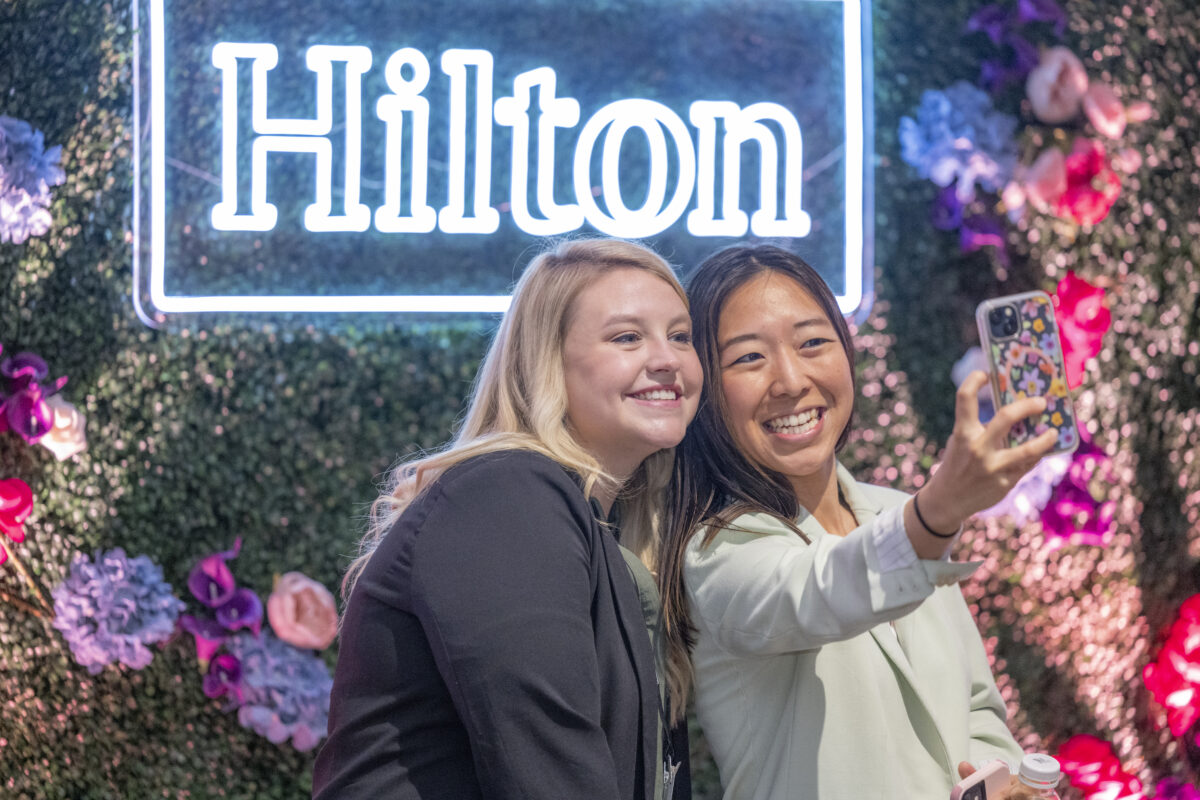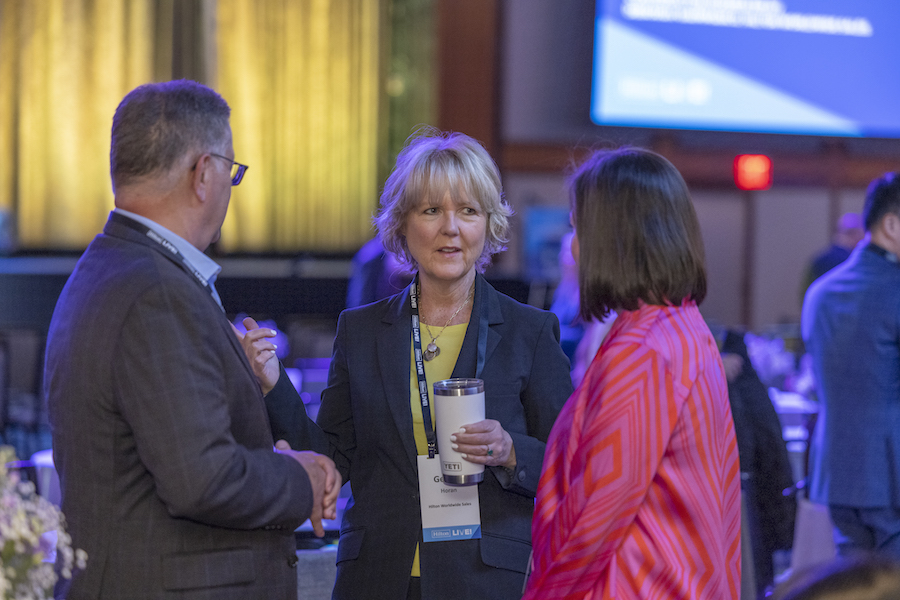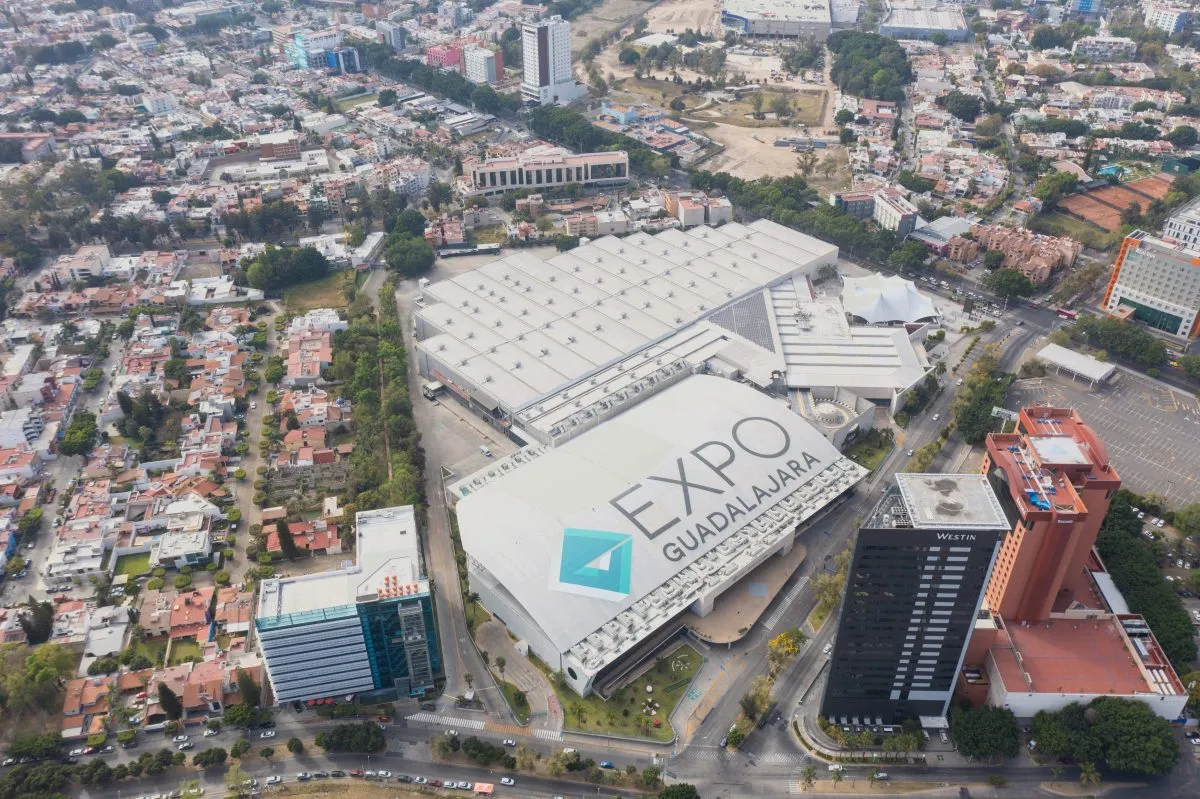3 Insider Secrets to Recruit the Next Gen of Event Professionals


Skift Take
This content was created collaboratively by Hilton and Skift’s branded content studio, SkiftX.
Meeting planning is a respected professional role in a vibrant industry, but if we want to attract the best talent out there, we need advocates to speak loud and proud about this amazing career. Job hunters should know that it’s a high-status professional role, often with close access to a business’s top executives and multi-million-dollar budgets. Chris Johnson — who for the past 7 years has held a key role managing new recruits through his position as Director of Global events at Land O’Lakes, Inc. — has changed his vernacular. “I stopped saying ‘meeting planner’ long ago in favor of ‘event management professional’ in all of my topical conversations,” he explains. “I always say, elevate the role, and you'll elevate the candidate pool.”
So if you’re an event professional who knows just what the industry has to offer from years of first-hand experience, how can you spread the word and help bolster future rising stars?
When researchers recently compared the results of 34 studies into students’ career intentions in hospitality and tourism, they found that the most important factors to future job satisfaction were confidence in the ability to make a meaningful contribution, a sense of ‘fitting in’ within the workplace, and pride in professional status. With the right guidance, would-be event professionals will realize just how much the role has to offer in each of these key areas. Who better to show that it promises a long and rewarding career than those who already work in the field?
To help uncover tactics that industry veterans can use to attract new talent and advocate for the industry, Skift Meetings sat down with six meeting planners and a senior executive at Hilton. Together, this team of experts came up with three handy talking points that can help recruit new job seekers curious about meeting planning — with precisely the kinds of details that are sure to win them over.
“This is a dream job for me full of exactly the kind of people I want to surround myself with, an enviable gold mine of outgoing, personable humans. I think it’s the greatest industry on the planet.”
Kristi Casale, VP, meetings & continuing education, American Academy of Pediatric Dentistry
1. The Industry Is Built on Making Connections
Events are all about creating connections between people, and event professionals live by this philosophy. They are often “people people,” and the good news is that this welcoming spirit makes it easy to network and build industry contacts.
Of course, it’s a two-way street, and if you want to convince would-be event professionals of this truism, it pays to make yourself available as a mentor. That means proactively advocating for the industry any chance you get.
Gerilyn Horan, vice president of group sales and strategic accounts for Hilton, does her part by speaking anywhere that future event stars might be found: at high schools, college fairs, ‘lunch and learn’ events, and reverse trade shows. If you’ve had a longstanding career as an event professional, you might also consider talking to the college-aged children of your peers about what got you into the business — and why you never left. If your stories resonate, you might be the reason they find their tribe.

The next step is to give them tips on how to build on the connection that they’ve already made by speaking with you. Try suggesting they dip a toe in by volunteering to work at an event. In addition to providing valuable first-hand experience, volunteering (or “interning”) can lead to meaningful professional relationships and top-of-the-list consideration for future employment opportunities.
Professional platforms like LinkedIn are another great way to find groups specifically dedicated to meeting and event planning, where young and new professionals can seek out job opportunities, share advice, and connect with peers.
Horan also recommends engaging with professional organizations like Meeting Professionals International (MPI), the Professional Convention Management Association (PCMA), and the Society for Incentive Travel Excellence (SITE). In addition to networking opportunities, these groups provide continuing education opportunities and advanced certifications. MPI even has a dedicated group for emerging professionals, along with a generous scholarship program. All of these association resources can help young and new meeting planners sharpen their skills and develop specific expertise with an eye toward leveling up in the industry.
2. Events Are a Big Business With Multi-Faceted Opportunities
Whether candidates are considering changing fields, re-entering the workforce after a resume gap, or just starting out, prospective recruits need to understand that the event industry offers a wealth of options well beyond balloons and pretty table settings. First, it’s important to communicate that effective meeting planning relies on a huge swathe of skills.
“You can do marketing, finance, speech writing, social media, or tech for an event,” says Horan. The opportunities on the supplier side are equally broad, whether it be at a hotel, a DMC (destination marketing company), or a production agency, just to name a few. “There are so many ways you can express your skill set in and around the industry.”
There are also multiple types of events to choose from: corporate conferences, festivals, trade shows, charity galas, and more. Even conventions don’t have to be “conventional” — think of all the “Comic Cons” and gaming events that allow staff to dive deep into subcultures. It’s a matter of letting career hopefuls know that their skill sets and special interests are in demand. They just have to find the right fit.
It’s also key to convey that a good attitude and a strong work ethic can often be more important than a college degree. Whenever you meet a job hunter or an up-and-comer who exhibits these positive personality traits, consider sharing your contact information and asking them to connect over coffee.
As Chris Johnson of Land O’Lakes explains, “I look for candidates who have a great attitude, a natural curiosity, and who are eager to learn. We can teach most of the operational aspects on the job, but personality skills are not so easy to mold.” Colleen Sheenan, who’s been on the event team with the American Academy of Pediatric Dentistry for eight years, echoes that sentiment: “Being organized, detail oriented, and very patient are key traits for a good job fit in this industry.”
3. The Job Comes With Brag-Worthy Benefits
Last but not least, it’s time to speak loud and proud about the benefits that come with event planning.
For many meeting professionals, the benefits of the job far outweigh its pressures. In fact, the hard work can make the results feel that much more rewarding. Kristi Casale, an industry veteran of 14 years currently working as vice president for meetings and continuing education at the American Academy of Pediatric Dentistry, shared her own experience of this unique euphoria: “The Sunday right after our annual meeting, you can see us floating on Cloud Nine. All our hard work has paid off. Our entire year’s work is on display for all to see.”
Sheenan feels much the same way, adding, “It’s a feeling we can’t describe. It’s so satisfying: pride in the organization, a glowing sense of success. It just motivates me to constantly improve.” Nothing compares to the satisfaction of seeing months of preparation pay-off once an event finally opens its doors.
Beyond this core sense of purpose, the role carries a variety of other perks that directly benefit event professionals.

Travel and Event Tickets
When selecting destinations, venues, and suppliers for events, meeting professionals regularly have the opportunity to “sample” the options.
Special excursions, tickets to entertainment and sporting events, and other off-site adventures can be a welcome treat during site visits. On-location team bonding activities can also help boost morale and bookend events by either hyping up teams pre-event or celebrating them after the fact.
Job Flexibility and Work From Home
In today’s age, many people are looking for opportunities that give them the flexibility to work from home. What they may not realize is that professional event planners have long enjoyed a flexible work schedule that allows them to work from anywhere they want.
VIP Connections
As an added bonus, meeting planners often get the chance to meet C-level executives and industry leaders they look up to or hope to learn from. And whether they’re event attendees or guest speakers, celebrities are often on-site for handshakes, signings, or even meet-and-greets.
Company Discounts
Company-specific incentives might vary depending on the industry, but it’s common that employees are encouraged to enjoy and appreciate an organization’s core line of business. That may mean free or discounted accommodations for meeting planners in the hospitality industry. “I’m sure all of us would say we have done things that, had it not been for this industry, we never would have been able to do,” says Horan. “We’re really fortunate in the way we are able to see the world and experience all of these amazing things.”
A Workplace Family
In addition to unlocking otherwise unattainable experiences, a career in events can also introduce young professionals to people they never would have met. Meeting planners often form work families with the people they collaborate with day in and day out.

Building community with fun, welcoming people who are like-minded and similarly motivated is an enormous perk of the job, and it feeds into that all-important next-generation job requirement: a natural sense of belonging. “Some of my nearest and dearest friends are people I would have never had the opportunity to meet, and I met them through my work,” says Dana Bailiff, senior manager of special events for Hilton, who’s been with the company for seven years.
As a final testament to job satisfaction, source after source repeated the same point: Once meeting professionals find their fit, they stay in the industry — often with the same employer — for decades. “This is a dream job for me full of exactly the kind of people I want to surround myself with, an enviable gold mine of outgoing, personable humans,” says Casale. “I think it’s the greatest industry on the planet.”
Find your dream job in the greatest industry on the planet at jobs.hilton.com
This content was created collaboratively by Hilton and Skift’s branded content studio, SkiftX.




